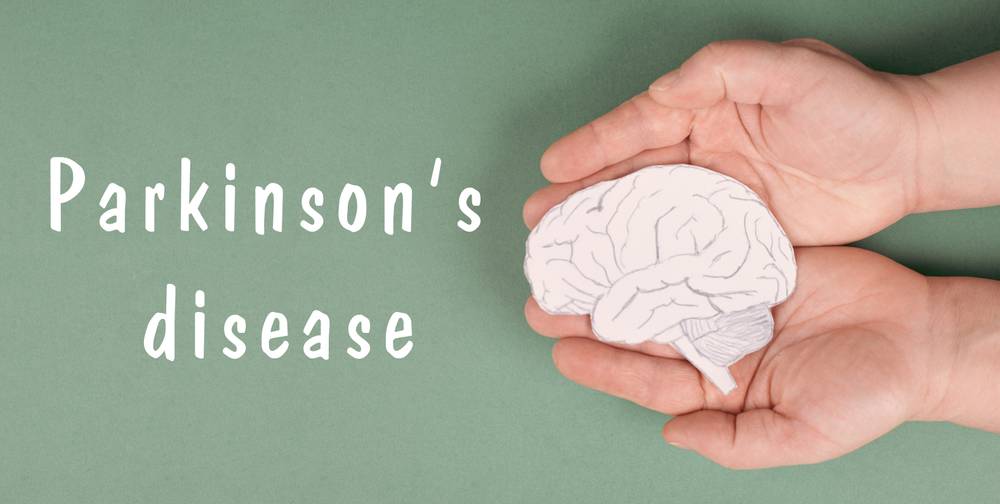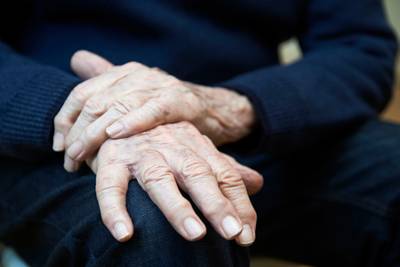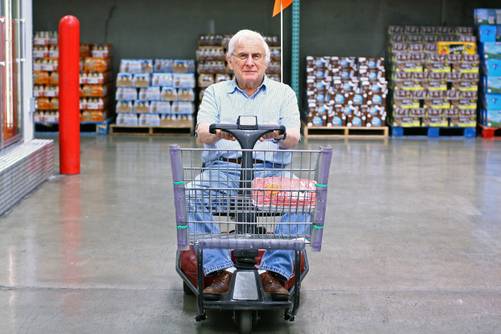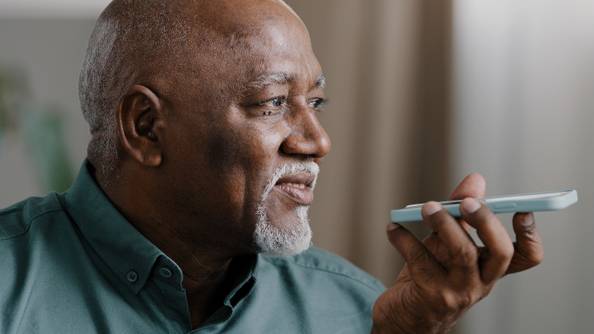How to Live with Parkinson's Disease
Ron Wright

“This is not the end, it is not even the beginning of the end, but it is perhaps the end of the beginning.”- Winston Churchill
Living with Parkinson's disease presents unique challenges, but with the right knowledge and strategies, individuals can effectively manage the condition and maintain a good quality of life. This article aims to provide an informative guide on understanding Parkinson's disease, its causes, and symptoms. It will explore various treatment options and medications available to manage the disease and discuss the importance of lifestyle modifications, including exercise and physical therapy. Additionally, it will delve into nutrition and diet recommendations specifically tailored for Parkinson's patients. Coping strategies for emotional and mental well-being, building a support system, and utilizing assistive devices and home modifications will also be discussed. Finally, the article will touch upon the latest research and promising developments in Parkinson's treatment, offering hope for the future. Whether you have been diagnosed with Parkinson's or are supporting someone with the condition, this comprehensive guide will provide valuable insights and practical tips for living well with Parkinson's disease.
Understanding Parkinson's Disease: Causes and Symptoms

Causes of Parkinson's Disease
Parkinson's disease is like that friend who shows up uninvited and overstays their welcome. Nobody really knows what causes it, and it's the second most common neurodegenerative disorder after Alzheimer's. Scientists suspect a combination of genetic and environmental factors, but hey, mysteries keep life interesting, right?
Early Signs and Symptoms
Recognizing the early signs of Parkinson's can be as challenging as finding your keys in a cluttered drawer. Symptoms often start subtly, with slight tremors in your hand or maybe a little stiffness in your movements. But don't fret, it's not all doom and gloom - there are various treatment options available to manage these symptoms.
Progression of Parkinson's Disease
Ah, the progression of Parkinson's - the slow and steady march of symptoms that can make life a little more interesting. Over time, you might start experiencing difficulties with balance, coordination, and even talking. But remember, you're in this for the long haul, so buckle up and let's explore how to manage this rollercoaster ride.
Managing Parkinson's Disease: Treatment Options and Medications
Medications for Parkinson's Disease
When it comes to medications for Parkinson's, it's like being at a buffet. You have a variety of options, from levodopa to dopamine agonists. These medications can help control those pesky symptoms by boosting dopamine levels, so you can get back to your normal groove.
Surgical Interventions
Sometimes, medication alone isn't enough to keep Parkinson's at bay. That's when surgical interventions swoop in like a superhero to save the day. Procedures like deep brain stimulation can provide relief by regulating abnormal brain activity. It's like having a mini pacemaker in your brain, but a lot cooler.
Physical and Occupational Therapy
Physical and occupational therapy can be your trusty sidekicks in this battle against Parkinson's. They can help improve your balance, strength, and overall coordination. Plus, you'll get to indulge in exciting exercises designed to keep you on your toes. Who said therapy had to be boring?
Lifestyle Modifications: Exercise and Physical Therapy
Join us each Friday as we share a new exercise that will keep you motivated and moving
Importance of Regular Exercise
Exercise – the magical pill that can do wonders for your body and mind. Regular exercise not only helps manage Parkinson's symptoms but also keeps you feeling like a rockstar. So lace up those sneakers and get ready to shake, rattle, and roll your way to a healthier and happier you.
Recommended Physical Activities
You don't have to be an Olympic athlete to stay active with Parkinson's. Think of physical activities that make you feel alive and go for it! Whether it's a leisurely walk in the park, a dance class that gets your body grooving, or even boxing (yes, you read that right), find what sparks joy and get moving. Check out our “Unfrozen Foot Friday” videos on our social media platforms each Friday. We give exercise tips each week that will help stay healthy and active.
Benefits of Physical Therapy
Physical therapy is like a personal trainer for your Parkinson's journey. It can help improve your strength, flexibility, and overall motor skills. Plus, you'll have a cheerleader by your side, pushing you to reach your full potential. Who needs a fancy gym membership when you have physical therapy sessions? I’ve heard it said that if you want to go fast go alone, but if you want to go far, go together.
Nutrition and Diet Recommendations for Parkinson's Patients
The Role of Nutrition in Managing Parkinson's
Food - the fuel for our bodies and the key to managing Parkinson's symptoms. A balanced and nutritious diet can provide the nutrients your body needs to function optimally. So grab those fruits, vegetables, whole grains, and put them on your plate like a colorful work of art.
Recommended Diet for Parkinson's Patients
Time to kiss those junk foods goodbye and say hello to a diet that’s high in magnesium and tyrosine-rich foods that support your well-being. A diet rich in antioxidants, omega-3 fatty acids, and lean proteins can be your secret weapon. One thing to note is that unlike most “healthy” diets, protein should be limited as it may interfere with how the drug levodopa (synthetic dopamine precursor) is absorbed by the body.
Managing Medication Interactions
Ah, the delicate dance between food and medication interactions. Some foods can interfere with how your Parkinson's medications work, like a party pooper stealing the spotlight. But fear not, a little knowledge and some expert advice can help you navigate this culinary minefield, ensuring your medications are working their magic.Remember, living with Parkinson's is a journey, and every journey has its ups and downs. But armed with knowledge, a positive attitude, and a touch of humor, you can navigate the twists and turns with grace. So, grab life by the hand, put on your dancing shoes, and show Parkinson's who's boss!
Coping Strategies: Emotional and Mental Well-being
Understanding the Emotional Impact of Parkinson's
Living with Parkinson's disease can take a toll on your emotional well-being. It's important to recognize and understand the emotional impact it can have on your life. From feelings of frustration and sadness to anxiety and fear, it's normal to experience a range of emotions.
Remember, you're not alone in this journey, and it's okay to seek support when needed.
Stress Management Techniques
Managing stress is crucial for maintaining your overall well-being. Finding healthy ways to cope can make a significant difference in your quality of life. Consider incorporating stress management techniques such as:
- deep breathing exercises
- meditation
- yoga
Remember, taking care of your mental health is just as important as taking care of your physical health.
Psychological Support and Therapy
Seeking psychological support and therapy can be incredibly beneficial when living with Parkinson's disease. A professional therapist or counselor can help you navigate the emotional challenges that may arise and provide valuable coping strategies. Therapy sessions can also serve as a safe space to express your feelings and concerns, allowing you to gain better insight and develop effective strategies for managing your emotions.
Support Systems: Family, Friends, and Support Groups
Building a Supportive Network
Building a supportive network is essential when living with Parkinson's. Surrounding yourself with understanding family members, friends, and loved ones can provide the emotional support you need. Open up to those close to you about your experience and educate them about Parkinson's, so they can better understand your needs and offer the support you require.
The Role of Caregivers
Caregivers play a crucial role in the lives of individuals with Parkinson's disease. Whether it's a family member, friend, or professional caregiver, their assistance can greatly enhance your quality of life. Communicate openly with your caregivers about your needs and work together to develop a plan that ensures your well-being and independence.

Benefits of Support Groups
Connecting with others who are going through similar experiences can be incredibly empowering. Joining a support group for individuals with Parkinson's disease allows you to share your challenges, triumphs, and strategies for coping. These groups provide a sense of community, understanding, and support that can make a significant difference in your journey with Parkinson's.
Enhancing Quality of Life: Assistive Devices and Home Modifications

Assistive Devices for Daily Activities
Assistive devices can help you maintain independence and improve your quality of life. From adaptive utensils and dressing aids to mobility devices and voice-activated technology, there are numerous options available to assist with daily activities. Consult with an occupational therapist to determine which assistive devices may be most beneficial for your specific needs.

Home Modifications for Safety and Accessibility
Making home modifications can create a safe and accessible environment for individuals with Parkinson's. Simple changes like installing grab bars in the bathroom, removing trip hazards, and improving lighting can go a long way in preventing accidents and promoting independence. Consider consulting with an occupational therapist or a home modification specialist for personalized recommendations.

Technology to Aid Parkinson's Management
Advancements in technology have brought forth a range of tools and apps designed to assist individuals with Parkinson's disease. These technologies can help with medication reminders, symptom tracking, and even provide virtual physical therapy sessions. Explore different technological options available and find ones that align with your needs and preferences.
Future Outlook: Research and Promising Developments in Parkinson's Treatment
Current Research Efforts
Researchers and scientists are continuously working towards understanding Parkinson's disease better and developing new treatment options. Stay informed about current research efforts and clinical trials. Participating in research studies can contribute to advancements in Parkinson's treatment and offer you access to cutting-edge therapies or interventions.
Potential Breakthroughs in Parkinson's Treatment
While there is no cure for Parkinson's at present, ongoing research holds promise for breakthroughs in treatment and management. From gene therapy and stem cell research to advancements in deep brain stimulation, scientists are exploring various avenues that may revolutionize how Parkinson's is treated in the future. Stay hopeful and continue to educate yourself about new developments as they arise. Remember, you are not defined by your diagnosis, but by your resilience and determination to live life to the fullest.With the right coping strategies, support systems, and a proactive approach to managing your condition, living with Parkinson's can be a journey filled with hope, resilience, and joy. Living with Parkinson's disease can be challenging, but it is important to remember that with proper management and support, individuals can still lead fulfilling lives. By following the recommended treatment options, making lifestyle modifications, and seeking emotional and physical support, those with Parkinson's can enhance their quality of life and maintain their independence. With ongoing research and advancements in treatment, there is hope for a brighter future for individuals living with Parkinson's. Remember, you are not alone in this journey, and there are resources available to help you navigate through the challenges. Stay informed, stay positive, and keep striving for a fulfilling life despite Parkinson's disease. In short, fight back by establishing a new normal and living life to the fullest.
